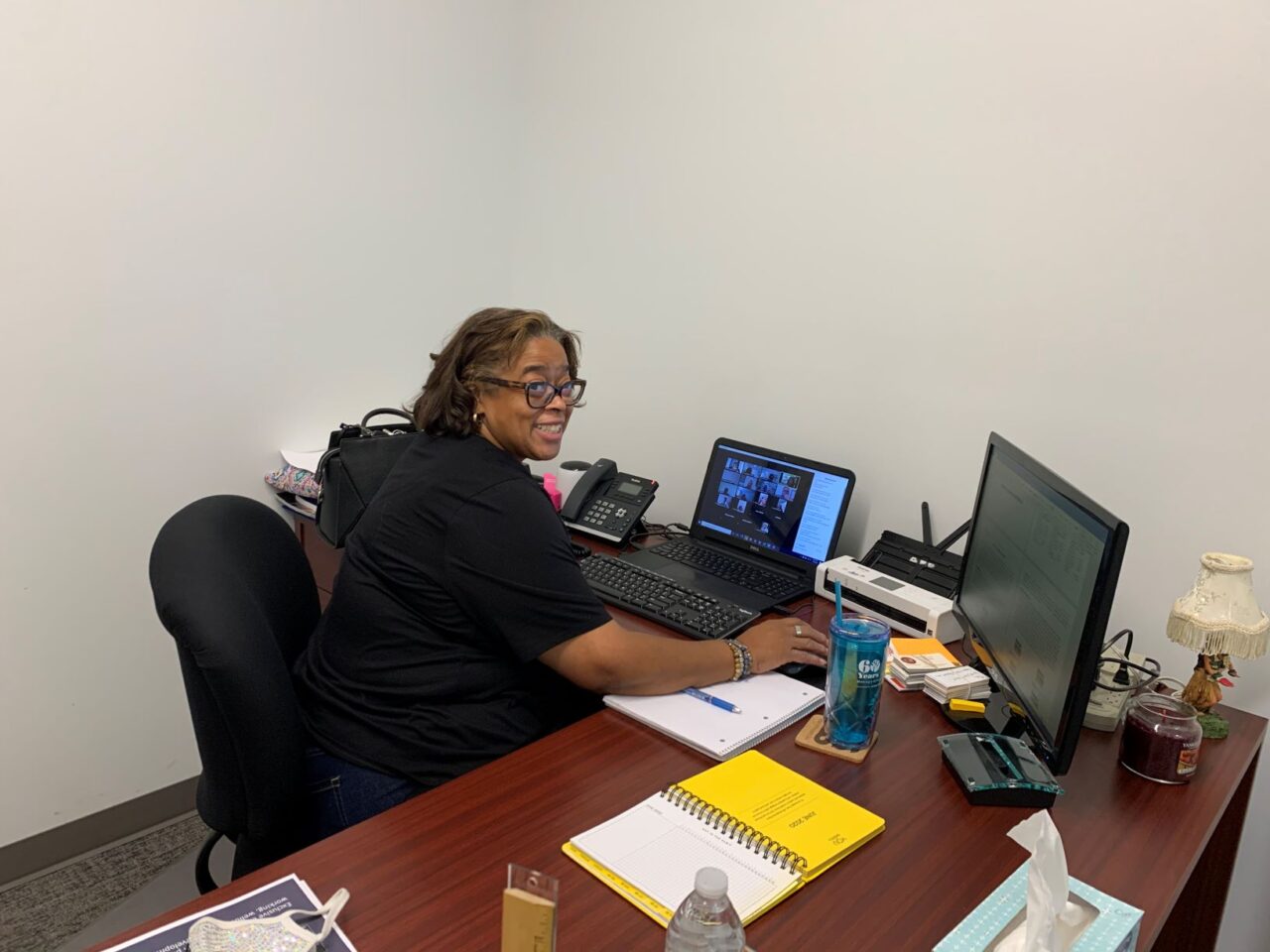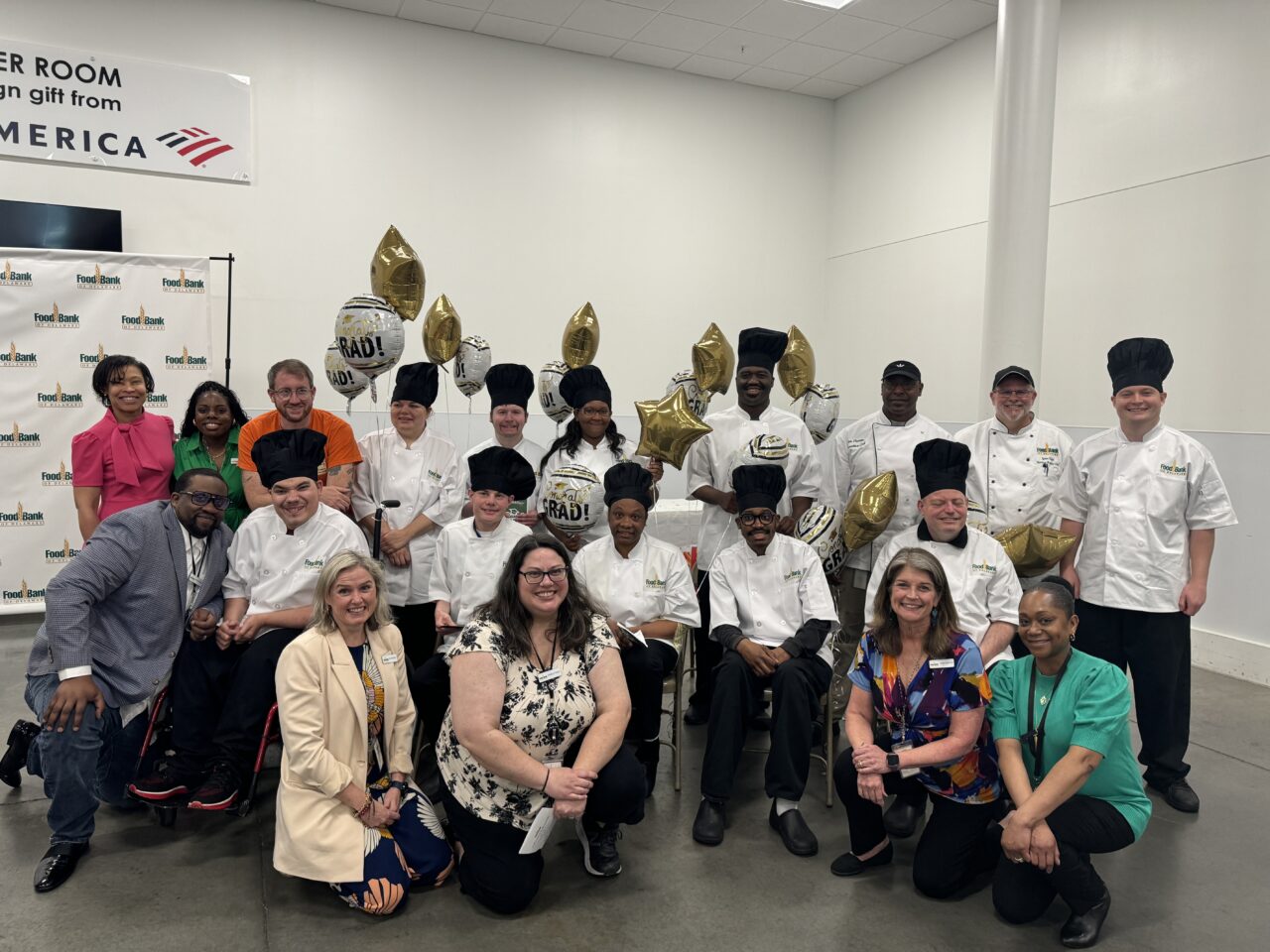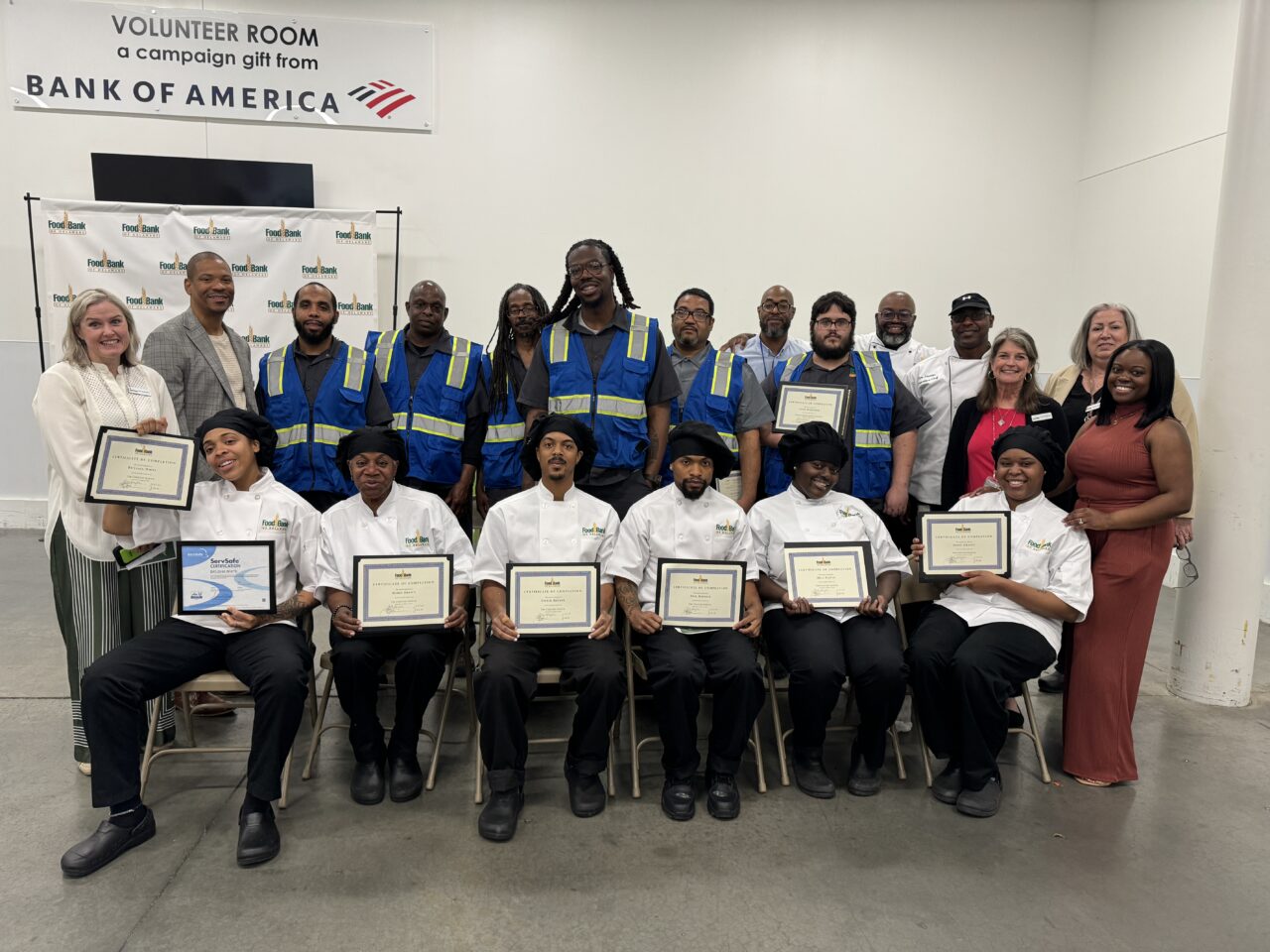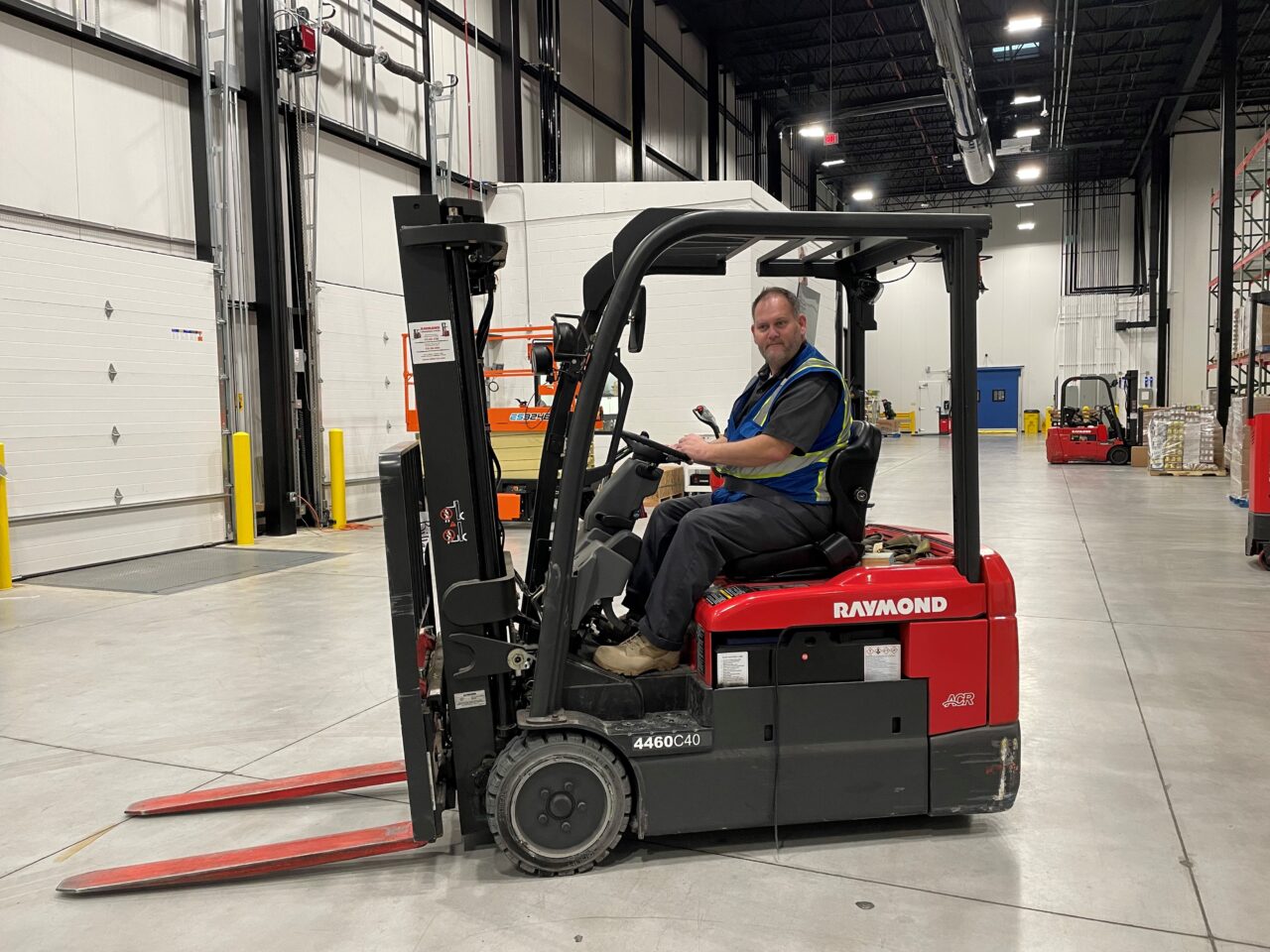Learning to adapt: Workforce training programs offered remotely
August 4, 2020
In the midst of the COVID-19 pandemic we all realized we’d have to figure out new ways of doing things that we’d done for years. While schools nationwide struggle to figure out how they will open – or not – next month, the Food Bank of Delaware is in the process of retooling its workforce development education. Students will receive instruction remotely and in small in-person groups. Does that work? Is it successful? We don’t know because we’re learning too.
Prior to mid-March, here’s what we offered: The Food Bank of Delaware offered 14-week Culinary School programs at both its Milford and Newark sites. Students came to the site for both classroom and hands-on kitchen training taught by our experienced chef instructors.
The culinary instruction was bolstered by life skills classes, such as financial literacy and resume writing. Students had the opportunity to take the ServSafe ® exam, and after 12 weeks in the classroom they had a paid two-week internship in the food-service industry. In FY 20, we had 53 graduates.
In addition to culinary training, the Food Bank also offers an 11-week warehouse and logistics training program, L.O.G.I.C. L.O.G.I.C. is an acronym for Logistics, Operations, General Warehousing and Inventory Control and prepares students for careers in the warehousing/logistics industry. In the 2020 fiscal year, we had 30 graduates. Students received hands-on, on-site training focused on warehouse operations and management, including how to safely handle equipment.
Obviously in COVID’s wake, we had to look for a viable Plan B since traditional on-site educational opportunities wouldn’t comply with social distancing and other safety guidelines.
Thanks to technology, such as Zoom, students are now able to attend life skill classes and learn about policies and procedures from home.
“It’s a challenge,” said Tim Hunter, the Food Bank’s executive chef. “I told the students this class would require a lot of self-motivation. It’s definitely a challenge.”
In Milford, Hunter, along with Chef Instructor Tish Badamshin, and Workforce Training Program Manager Ruthann Messick are unsure how the students will fare as the curriculum shifts to hands-on culinary training, such as knife skills. The staff has been creating instructional materials, including videos and PowerPoints, so that students will have visual references rather than text.
“We are even doing video tours,” added Messick.
“We are learning as we go. The silver lining,” added Badamshin, “is that we will have these videos and learning tools as resources in the future.”
“I even tell the students ‘It’s new to you, and it’s new to us,” said Messick.
Starting next week though, students will spend two days per week on site in the kitchen practicing their skills in small socially-distanced groups.
As for the L.O.G.I.C. program, Erik Klair, operations instructor, somewhat echoed the culinary instructors. “We’re learning how to do it. It’s slower getting going,” he said, noting that the students seemed to be excited and engaged.
“It’s really too soon to tell,” he added. Unlike the culinary staff, he doesn’t have the challenge of developing learning resources. “Right now, we’re using what the internet has to offer, but I will probably make some instructional videos, like a tour of the facility.”
Like the culinary students, L.O.G.I.C. students will have the chance to work on warehouse equipment in small groups starting next week.
Visit www.fbd.org for more information on the Food Bank of Delaware’s workforce development programs.










